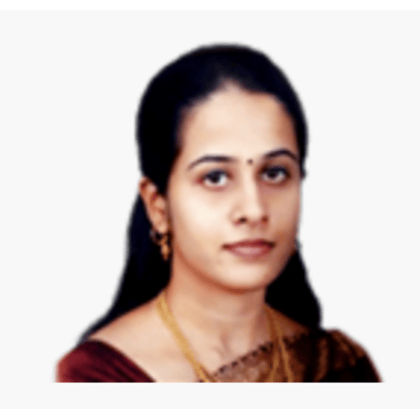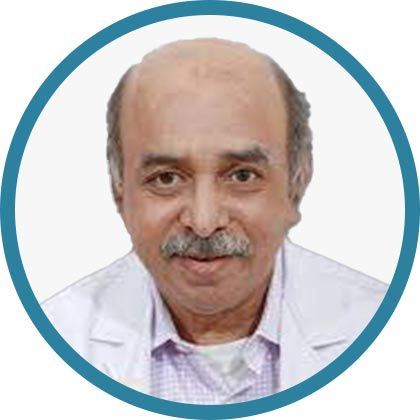E. Coli Infections and Their Management
Learn about E. coli infections, their causes, symptoms, diagnosis, and treatment options. Discover prevention tips, food safety measures, and when to seek medical help for complications.

Written by
Last updated on 1st Sep, 2025

E. coli (Escherichia coli) is a type of bacteria commonly found in the intestines of humans and animals. While most strains are harmless and even beneficial for digestion, some can cause serious infections. If you or a loved one has been affected by an E. coli infection, it’s important to understand the condition, recognize symptoms early, and take steps to manage and prevent it.
What Is an E. Coli Infection?
E. coli infections occur when harmful strains of the bacteria enter the body, usually through contaminated food, water, or contact with infected animals or people. Some strains produce toxins that can lead to severe stomach cramps, diarrhea, and even life-threatening complications.
Common Symptoms of E. Coli Infection
Symptoms usually appear 1–10 days after exposure and may include:
- Severe stomach cramps
- Diarrhea (often bloody)
- Nausea and vomiting
- Mild fever (in some cases)
- Fatigue and weakness
In severe cases, particularly in young children and older adults, E. coli can lead to hemolytic uremic syndrome (HUS), a condition that damages red blood cells and kidneys.
How Do E. Coli Infections Spread?
E. coli spreads through:
1. Contaminated Food – Undercooked ground beef, raw milk, unpasteurized juices, and contaminated vegetables (like lettuce or spinach).
2. Contaminated Water – Drinking or swimming in water polluted with fecal matter.
3. Person-to-Person Contact – Poor hand hygiene after using the bathroom or changing diapers.
4. Animal Contact – Handling farm animals or petting zoos without proper handwashing.
Get Your Health Assessed
Who Is at Higher Risk?
While anyone can get an E. coli infection, certain groups are more vulnerable:
- Young children (under 5 years)
- Older adults (over 65 years)
- People with weakened immune systems
- Pregnant women
How Are E. Coli Infections Diagnosed?
If you suspect an E. coli infection, a doctor may recommend:
- Stool Test – To detect the presence of harmful E. coli strains.
- Blood Tests – To check for complications like HUS.
If you experience severe symptoms (such as bloody diarrhea or dehydration), seek medical attention immediately.
Treatment and Management
Most E. coli infections resolve on their own within 5–10 days. However, supportive care is crucial:
1. Stay Hydrated
- Drink plenty of fluids (water, oral rehydration solutions).
- Avoid sugary drinks, caffeine, and alcohol, which can worsen dehydration.
2. Avoid Anti-Diarrheal Medications
Medications like loperamide (Imodium) can slow digestion, trapping toxins in the body.
3. Rest and Monitor Symptoms
- Get plenty of rest to help your body fight the infection.
Watch for signs of dehydration (dry mouth, dizziness, reduced urination).
Consult a Specialist for Personalised Advice
4. Seek Medical Help If Needed
If symptoms worsen (persistent vomiting, high fever, bloody stools), consult a doctor.
Severe cases may require hospitalization for IV fluids or kidney treatment.
Preventing E. Coli Infections
Prevention is the best way to avoid E. coli infections:
- Food Safety Tips
- Cook meat thoroughly (especially ground beef) to at least 160°F (71°C).
- Avoid raw milk and unpasteurized juices.
- Wash fruits and vegetables before eating.
- Use separate cutting boards for raw meat and produce.
- Hygiene Practices.
- Wash hands thoroughly with soap after using the bathroom, changing diapers, or handling animals.
- Clean kitchen surfaces regularly to prevent cross-contamination..
- Safe Drinking Water
- Drink filtered or boiled water if you suspect contamination.
- Avoid swallowing water while swimming in lakes or pools.
When to See a Doctor
Contact a healthcare provider if you or a family member experience:
- Bloody diarrhea
- Severe dehydration (sunken eyes, no urine for 12 hours)
- High fever (above 101°F or 38.3°C)
- Confusion or extreme fatigue
If you need expert advice or testing, you can book a consultation or lab test through Apollo 24|7 for quick and reliable healthcare support.
Final Thoughts
E. coli infections can be uncomfortable and sometimes dangerous, but with proper care and prevention, most people recover fully. By following food safety guidelines, maintaining good hygiene, and staying alert to symptoms, you can protect yourself and your family.
If you have concerns about E. coli or need medical guidance, don’t hesitate to reach out to a healthcare professional. Stay informed, stay safe, and take care of your health!
Need Help?
Book a doctor consultation or lab test with Apollo 24|7 for expert care and peace of mind.
Consult a Specialist for Personalised Advice
Consult a Specialist for Personalised Advice

Dr. Hari Krishna
General Physician/ Internal Medicine Specialist
13 Years • MD (Gen. Med. )
Chennai
Apollo Hospitals Greams Road, Chennai
(50+ Patients)

Dr. Aman Kumar
General Physician/ Internal Medicine Specialist
29 Years • MBBS, MD
Chennai
Apollo Hospitals Heart Centre Thousand Lights, Chennai
(75+ Patients)

Dr. Sandhya Chandel
General Physician/ Internal Medicine Specialist
16 Years • MBBS, MD (Int. Med.), IDCCM
Bilaspur
Apollo Hospitals Seepat Road, Bilaspur
(125+ Patients)

Dr. Ramya Hari
General Practitioner
18 Years • Medical Head & Family Physician, DG Shipping Approved Doctor, Panel Physician - UK Visa Medicals
Chennai
Apollo Medical Centre Kotturpuram, Chennai

Dr. Vijai Kumar C
General Physician/ Internal Medicine Specialist
42 Years • MD (Gen Med.)
Chennai
Apollo Hospitals Greams Road, Chennai
(50+ Patients)
Consult a Specialist for Personalised Advice

Dr. Hari Krishna
General Physician/ Internal Medicine Specialist
13 Years • MD (Gen. Med. )
Chennai
Apollo Hospitals Greams Road, Chennai
(50+ Patients)

Dr. Aman Kumar
General Physician/ Internal Medicine Specialist
29 Years • MBBS, MD
Chennai
Apollo Hospitals Heart Centre Thousand Lights, Chennai
(75+ Patients)

Dr. Sandhya Chandel
General Physician/ Internal Medicine Specialist
16 Years • MBBS, MD (Int. Med.), IDCCM
Bilaspur
Apollo Hospitals Seepat Road, Bilaspur
(125+ Patients)

Dr. Ramya Hari
General Practitioner
18 Years • Medical Head & Family Physician, DG Shipping Approved Doctor, Panel Physician - UK Visa Medicals
Chennai
Apollo Medical Centre Kotturpuram, Chennai

Dr. Vijai Kumar C
General Physician/ Internal Medicine Specialist
42 Years • MD (Gen Med.)
Chennai
Apollo Hospitals Greams Road, Chennai
(50+ Patients)
Consult a Specialist for Personalised Advice

Dr. Hari Krishna
General Physician/ Internal Medicine Specialist
13 Years • MD (Gen. Med. )
Chennai
Apollo Hospitals Greams Road, Chennai
(50+ Patients)

Dr. Aman Kumar
General Physician/ Internal Medicine Specialist
29 Years • MBBS, MD
Chennai
Apollo Hospitals Heart Centre Thousand Lights, Chennai
(75+ Patients)

Dr. Sandhya Chandel
General Physician/ Internal Medicine Specialist
16 Years • MBBS, MD (Int. Med.), IDCCM
Bilaspur
Apollo Hospitals Seepat Road, Bilaspur
(125+ Patients)

Dr. Ramya Hari
General Practitioner
18 Years • Medical Head & Family Physician, DG Shipping Approved Doctor, Panel Physician - UK Visa Medicals
Chennai
Apollo Medical Centre Kotturpuram, Chennai

Dr. Vijai Kumar C
General Physician/ Internal Medicine Specialist
42 Years • MD (Gen Med.)
Chennai
Apollo Hospitals Greams Road, Chennai
(50+ Patients)

